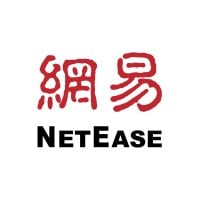
WIRED Company Cyber Security Posture
wired.comWIRED is where tomorrow is realized. The WIRED conversation illuminates how technology is changing every aspect of our lives--from culture to business, science to design. The breakthroughs and innovations that we cover lead to new ways of thinking, new connections, and new industries. We introduce you to the people, companies, and ideas that matter.
WIRED Company Details
wired
465 employees
1743330.0
none
Technology, Information and Internet
wired.com
285
WIR_1305423
In-progress
Between 400 and 500
This score is AI-generated and less favored by cyber insurers, who prefer the TPRM score.
 WIRED Global Score
WIRED Global Score.png)

WIRED Company Scoring based on AI Models
| Model Name | Date | Description | Current Score Difference | Score |
|---|---|---|---|---|
| AVERAGE-Industry | 03-12-2025 | This score represents the average cybersecurity rating of companies already scanned within the same industry. It provides a benchmark to compare an individual company's security posture against its industry peers. | N/A | Between 400 and 500 |
WIRED Company Cyber Security News & History
| Entity | Type | Severity | Impact | Seen | Url ID | Details | View |
|---|---|---|---|---|---|---|---|
| WIRED | Breach | 25 | 1 | 9/2024 | WIR000091224 | Link | |
Rankiteo Explanation : Attack without any consequencesDescription: During the Democratic National Convention in Chicago, WIRED investigated the use of cell site simulators (CSS) but found no evidence of their deployment. The team collected data signals from numerous devices, potentially exposing vulnerabilities for activists and police. Devices such as police drones and body cameras were tracked between different protest sites, revealing movement patterns. While the investigation points to the risks of being tracked by emitted signals from various devices, there were no direct consequences on WIRED's operations. | |||||||
| WIRED | Breach | 85 | 4 | 1/2025 | WIR000011725 | Link | |
Rankiteo Explanation : Attack with significant impact with customers data leaksDescription: During the 2024 Democratic National Convention, a device was detected that raised concerns of potential unauthorized surveillance of convention attendees and protesters. Analysis by the EFF indicated that a cell-site simulator was likely used to intercept phone signals. This led to suspicions of privacy invasion and the collection of sensitive data, including call metadata and location information. The legitimacy of the deployment and adherence to warrant requirements remain unclear, casting a shadow on the privacy and security practices surrounding politically charged events. | |||||||
| WIRED | Cyber Attack | 85 | 4 | 1/2025 | WIR000011425 | Link | |
Rankiteo Explanation : Attack with significant impact with customers data leaksDescription: During the 2024 Democratic National Convention in Chicago, WIRED uncovered potential unauthorized use of a cell-site simulator capable of intercepting phone signals. The deployment of this device, detected by EFF through signal data analysis, raised concerns about the covert surveillance of protesters and the suppression of dissent. Despite the legal requirement for warrants to use such technology, there's uncertainty about its authorization, suggesting potential breaches of privacy law and illicit surveillance practices, without clear knowledge of who operated the device or their intention. | |||||||
| WIRED | Vulnerability | 60 | 1 | 9/2024 | WIR001091024 | Link | |
Rankiteo Explanation : Attack without any consequencesDescription: During the Democratic National Convention, a WIRED investigation searched for cell site simulators, potentially used against protesters. No simulators were found, but massive data collection occurred, with signals from nearly 300,000 devices gathered, exposing vulnerabilities. Devices associated with law enforcement and consumer electronics painted a picture of location patterns and posed privacy concerns. The findings underscore the tracking risks inherent in a highly networked society, affecting both law enforcement and civilians during sensitive events. | |||||||
WIRED Company Subsidiaries

WIRED is where tomorrow is realized. The WIRED conversation illuminates how technology is changing every aspect of our lives--from culture to business, science to design. The breakthroughs and innovations that we cover lead to new ways of thinking, new connections, and new industries. We introduce you to the people, companies, and ideas that matter.
Access Data Using Our API

Get company history
.png)
WIRED Cyber Security News
Mysterious Database of 184 Million Records Exposes Vast Array of Login Credentials
A trove of breached data, which has now been taken down, includes user logins for platforms including Apple, Google, and Meta.
A Researcher Figured Out How to Reveal Any Phone Number Linked to a Google Account
SIM swappers are hackers who take over a target's phone number in order to receive their calls and texts, which in turn can let them break into ...
‘Stupid and Dangerous’: CISA Funding Chaos Threatens Essential Cybersecurity Program
'Stupid and Dangerous': CISA Funding Chaos Threatens Essential Cybersecurity Program. The CVE Program is the primary way software ...
The Rise of ‘Vibe Hacking’ Is the Next AI Nightmare
In the near future one hacker may be able to unleash 20 zero-day attacks on different systems across the world all at once.
Security News This Week: The Mystery of iPhone Crashes That Apple Denies Are Linked to Chinese Hacking
The security firm iVerify this week brought to light a series of suspicious iPhone crashes that researchers say might just indicate a stealthy, ...
Under Trump, US Cyberdefense Loses Its Head
Chinese hacks, rampant ransomware, and Donald Trump's budget cuts all threaten US security. In an exit interview with WIRED, former CISA head ...
HHS Systems Are in Danger of Collapsing, Workers Say
Much of the IT and cybersecurity infrastructure underpinning the US health system is in danger of a possible collapse following a purge of IT ...
Feds Charge 16 Russians Allegedly Tied to Botnets Used in Ransomware, Cyberattacks, and Spying
A new US indictment against a group of Russian nationals offers a clear example of how, authorities say, a single malware operation can ...
DOGE Now Has Access to the Top US Cybersecurity Agency
The elusive boss of the Trickbot and Conti cybercriminal groups has been known only as “Stern.” Now, German law enforcement has published his ...

WIRED Similar Companies

Taobao Marketplace
Launched in May 2003, Taobao Marketplace (www.taobao.com) is the online shopping destination of choice for Chinese consumers looking for wide selection, value and convenience. Shoppers choose from a wide range of products and services on Taobao Marketplace, which features hundreds of millions of pro

SLB
We are a technology company that unlocks access to energy for the benefit of all. As innovators, that’s been our mission for nearly a century. Today, we face a global imperative to create a future with more energy, but less carbon. Our diverse, innovative change makers are focused on going further i

IndiaMART InterMESH Limited
IndiaMART is India's largest online B2B marketplace, connecting buyers with suppliers across a wide array of industries. IndiaMART provides a platform for Small & Medium Enterprises (SMEs), large enterprises, and individual buyers, helping them access diverse portfolios of quality products. Since

NetEase
As a leading internet technology company based in China, NetEase, Inc. (NASDAQ: NTES and HKEX:9999, "NetEase") provides premium online services centered around content creation. With extensive offerings across its expanding gaming ecosystem, NetEase develops and operates some of China's most popula

Swiggy
Swiggy is India’s pioneering on-demand convenience platform, catering to millions of consumers each month. Founded in 2014, its mission is to elevate the quality of life for the urban consumer by offering unparalleled convenience. With an extensive footprint in food delivery, Swiggy Food collaborate

Times Internet
At Times Internet, we create premium digital products that simplify and enhance the lives of millions. As India’s largest digital products company, we have a significant presence across a wide range of categories, including News, Sports, Fintech, and Enterprise solutions. Our portfolio features mar

Frequently Asked Questions (FAQ) on Cybersecurity Incidents
WIRED CyberSecurity History Information
Total Incidents: According to Rankiteo, WIRED has faced 4 incidents in the past.
Incident Types: The types of cybersecurity incidents that have occurred include ['Vulnerability', 'Cyber Attack', 'Breach'].
Total Financial Loss: The total financial loss from these incidents is estimated to be {total_financial_loss}.
Cybersecurity Posture: The company's overall cybersecurity posture is described as WIRED is where tomorrow is realized. The WIRED conversation illuminates how technology is changing every aspect of our lives--from culture to business, science to design. The breakthroughs and innovations that we cover lead to new ways of thinking, new connections, and new industries. We introduce you to the people, companies, and ideas that matter..
Detection and Response: The company detects and responds to cybersecurity incidents through {description_of_detection_and_response_process}.
Incident Details
Incident 1: Ransomware Attack
Title: {Incident_Title}
Description: {Brief_description_of_the_incident}
Date Detected: {Detection_Date}
Date Publicly Disclosed: {Disclosure_Date}
Date Resolved: {Resolution_Date}
Type: {Type_of_Attack}
Attack Vector: {Attack_Vector}
Vulnerability Exploited: {Vulnerability}
Threat Actor: {Threat_Actor}
Motivation: {Motivation}
Incident 2: Data Breach
Title: {Incident_Title}
Description: {Brief_description_of_the_incident}
Date Detected: {Detection_Date}
Date Publicly Disclosed: {Disclosure_Date}
Date Resolved: {Resolution_Date}
Type: {Type_of_Attack}
Attack Vector: {Attack_Vector}
Vulnerability Exploited: {Vulnerability}
Threat Actor: {Threat_Actor}
Motivation: {Motivation}
Common Attack Types: The most common types of attacks the company has faced are ['Breach'].
Identification of Attack Vectors: The company identifies the attack vectors used in incidents through {description_of_identification_process}.
Impact of the Incidents
Incident 1: Ransomware Attack
Financial Loss: {Financial_Loss}
Data Compromised: {Data_Compromised}
Systems Affected: {Systems_Affected}
Downtime: {Downtime}
Operational Impact: {Operational_Impact}
Conversion Rate Impact: {Conversion_Rate_Impact}
Revenue Loss: {Revenue_Loss}
Customer Complaints: {Customer_Complaints}
Brand Reputation Impact: {Brand_Reputation_Impact}
Legal Liabilities: {Legal_Liabilities}
Identity Theft Risk: {Identity_Theft_Risk}
Payment Information Risk: {Payment_Information_Risk}
Incident 2: Data Breach
Financial Loss: {Financial_Loss}
Data Compromised: {Data_Compromised}
Systems Affected: {Systems_Affected}
Downtime: {Downtime}
Operational Impact: {Operational_Impact}
Conversion Rate Impact: {Conversion_Rate_Impact}
Revenue Loss: {Revenue_Loss}
Customer Complaints: {Customer_Complaints}
Brand Reputation Impact: {Brand_Reputation_Impact}
Legal Liabilities: {Legal_Liabilities}
Identity Theft Risk: {Identity_Theft_Risk}
Payment Information Risk: {Payment_Information_Risk}
Average Financial Loss: The average financial loss per incident is {average_financial_loss}.
Commonly Compromised Data Types: The types of data most commonly compromised in incidents are {list_of_commonly_compromised_data_types}.
Incident 1: Ransomware Attack
Entity Name: {Entity_Name}
Entity Type: {Entity_Type}
Industry: {Industry}
Location: {Location}
Size: {Size}
Customers Affected: {Customers_Affected}
Incident 2: Data Breach
Entity Name: {Entity_Name}
Entity Type: {Entity_Type}
Industry: {Industry}
Location: {Location}
Size: {Size}
Customers Affected: {Customers_Affected}
Response to the Incidents
Incident 1: Ransomware Attack
Incident Response Plan Activated: {Yes/No}
Third Party Assistance: {Yes/No}
Law Enforcement Notified: {Yes/No}
Containment Measures: {Containment_Measures}
Remediation Measures: {Remediation_Measures}
Recovery Measures: {Recovery_Measures}
Communication Strategy: {Communication_Strategy}
Adaptive Behavioral WAF: {Adaptive_Behavioral_WAF}
On-Demand Scrubbing Services: {On_Demand_Scrubbing_Services}
Network Segmentation: {Network_Segmentation}
Enhanced Monitoring: {Enhanced_Monitoring}
Incident 2: Data Breach
Incident Response Plan Activated: {Yes/No}
Third Party Assistance: {Yes/No}
Law Enforcement Notified: {Yes/No}
Containment Measures: {Containment_Measures}
Remediation Measures: {Remediation_Measures}
Recovery Measures: {Recovery_Measures}
Communication Strategy: {Communication_Strategy}
Adaptive Behavioral WAF: {Adaptive_Behavioral_WAF}
On-Demand Scrubbing Services: {On_Demand_Scrubbing_Services}
Network Segmentation: {Network_Segmentation}
Enhanced Monitoring: {Enhanced_Monitoring}
Incident Response Plan: The company's incident response plan is described as {description_of_incident_response_plan}.
Third-Party Assistance: The company involves third-party assistance in incident response through {description_of_third_party_involvement}.
Data Breach Information
Incident 2: Data Breach
Type of Data Compromised: {Type_of_Data}
Number of Records Exposed: {Number_of_Records}
Sensitivity of Data: {Sensitivity_of_Data}
Data Exfiltration: {Yes/No}
Data Encryption: {Yes/No}
File Types Exposed: {File_Types}
Personally Identifiable Information: {Yes/No}
Prevention of Data Exfiltration: The company takes the following measures to prevent data exfiltration: {description_of_prevention_measures}.
Handling of PII Incidents: The company handles incidents involving personally identifiable information (PII) through {description_of_handling_process}.
Ransomware Information
Incident 1: Ransomware Attack
Ransom Demanded: {Ransom_Amount}
Ransom Paid: {Ransom_Paid}
Ransomware Strain: {Ransomware_Strain}
Data Encryption: {Yes/No}
Data Exfiltration: {Yes/No}
Ransom Payment Policy: The company's policy on paying ransoms in ransomware incidents is described as {description_of_ransom_payment_policy}.
Data Recovery from Ransomware: The company recovers data encrypted by ransomware through {description_of_data_recovery_process}.
Regulatory Compliance
Incident 1: Ransomware Attack
Regulations Violated: {Regulations_Violated}
Fines Imposed: {Fines_Imposed}
Legal Actions: {Legal_Actions}
Regulatory Notifications: {Regulatory_Notifications}
Incident 2: Data Breach
Regulations Violated: {Regulations_Violated}
Fines Imposed: {Fines_Imposed}
Legal Actions: {Legal_Actions}
Regulatory Notifications: {Regulatory_Notifications}
Regulatory Frameworks: The company complies with the following regulatory frameworks regarding cybersecurity: {list_of_regulatory_frameworks}.
Ensuring Regulatory Compliance: The company ensures compliance with regulatory requirements through {description_of_compliance_measures}.
Lessons Learned and Recommendations
Incident 1: Ransomware Attack
Lessons Learned: {Lessons_Learned}
Incident 2: Data Breach
Lessons Learned: {Lessons_Learned}
Incident 1: Ransomware Attack
Recommendations: {Recommendations}
Incident 2: Data Breach
Recommendations: {Recommendations}
Key Lessons Learned: The key lessons learned from past incidents are {list_of_key_lessons_learned}.
Implemented Recommendations: The company has implemented the following recommendations to improve cybersecurity: {list_of_implemented_recommendations}.
References
Additional Resources: Stakeholders can find additional resources on cybersecurity best practices at {list_of_additional_resources}.
Investigation Status
Incident 1: Ransomware Attack
Investigation Status: {Investigation_Status}
Incident 2: Data Breach
Investigation Status: {Investigation_Status}
Communication of Investigation Status: The company communicates the status of incident investigations to stakeholders through {description_of_communication_process}.
Stakeholder and Customer Advisories
Incident 1: Ransomware Attack
Stakeholder Advisories: {Stakeholder_Advisories}
Customer Advisories: {Customer_Advisories}
Incident 2: Data Breach
Stakeholder Advisories: {Stakeholder_Advisories}
Customer Advisories: {Customer_Advisories}
Advisories Provided: The company provides the following advisories to stakeholders and customers following an incident: {description_of_advisories_provided}.
Initial Access Broker
Incident 1: Ransomware Attack
Entry Point: {Entry_Point}
Reconnaissance Period: {Reconnaissance_Period}
Backdoors Established: {Backdoors_Established}
High Value Targets: {High_Value_Targets}
Data Sold on Dark Web: {Yes/No}
Incident 2: Data Breach
Entry Point: {Entry_Point}
Reconnaissance Period: {Reconnaissance_Period}
Backdoors Established: {Backdoors_Established}
High Value Targets: {High_Value_Targets}
Data Sold on Dark Web: {Yes/No}
Monitoring and Mitigation of Initial Access Brokers: The company monitors and mitigates the activities of initial access brokers through {description_of_monitoring_and_mitigation_measures}.
Post-Incident Analysis
Incident 1: Ransomware Attack
Root Causes: {Root_Causes}
Corrective Actions: {Corrective_Actions}
Incident 2: Data Breach
Root Causes: {Root_Causes}
Corrective Actions: {Corrective_Actions}
Post-Incident Analysis Process: The company's process for conducting post-incident analysis is described as {description_of_post_incident_analysis_process}.
Corrective Actions Taken: The company has taken the following corrective actions based on post-incident analysis: {list_of_corrective_actions_taken}.
Additional Questions
General Information
Ransom Payment History: The company has {paid/not_paid} ransoms in the past.
Last Ransom Demanded: The amount of the last ransom demanded was {last_ransom_amount}.
Last Attacking Group: The attacking group in the last incident was {last_attacking_group}.
Incident Details
Most Recent Incident Detected: The most recent incident detected was on {most_recent_incident_detected_date}.
Most Recent Incident Publicly Disclosed: The most recent incident publicly disclosed was on {most_recent_incident_publicly_disclosed_date}.
Most Recent Incident Resolved: The most recent incident resolved was on {most_recent_incident_resolved_date}.
Impact of the Incidents
Highest Financial Loss: The highest financial loss from an incident was {highest_financial_loss}.
Most Significant Data Compromised: The most significant data compromised in an incident was {most_significant_data_compromised}.
Most Significant System Affected: The most significant system affected in an incident was {most_significant_system_affected}.
Response to the Incidents
Third-Party Assistance in Most Recent Incident: The third-party assistance involved in the most recent incident was {third_party_assistance_in_most_recent_incident}.
Containment Measures in Most Recent Incident: The containment measures taken in the most recent incident were {containment_measures_in_most_recent_incident}.
Data Breach Information
Most Sensitive Data Compromised: The most sensitive data compromised in a breach was {most_sensitive_data_compromised}.
Number of Records Exposed: The number of records exposed in the most significant breach was {number_of_records_exposed}.
Ransomware Information
Highest Ransom Demanded: The highest ransom demanded in a ransomware incident was {highest_ransom_demanded}.
Highest Ransom Paid: The highest ransom paid in a ransomware incident was {highest_ransom_paid}.
Regulatory Compliance
Highest Fine Imposed: The highest fine imposed for a regulatory violation was {highest_fine_imposed}.
Most Significant Legal Action: The most significant legal action taken for a regulatory violation was {most_significant_legal_action}.
Lessons Learned and Recommendations
Most Significant Lesson Learned: The most significant lesson learned from past incidents was {most_significant_lesson_learned}.
Most Significant Recommendation Implemented: The most significant recommendation implemented to improve cybersecurity was {most_significant_recommendation_implemented}.
References
Most Recent Source: The most recent source of information about an incident is {most_recent_source}.
Most Recent URL for Additional Resources: The most recent URL for additional resources on cybersecurity best practices is {most_recent_url}.
Investigation Status
Current Status of Most Recent Investigation: The current status of the most recent investigation is {current_status_of_most_recent_investigation}.
Stakeholder and Customer Advisories
Most Recent Stakeholder Advisory: The most recent stakeholder advisory issued was {most_recent_stakeholder_advisory}.
Most Recent Customer Advisory: The most recent customer advisory issued was {most_recent_customer_advisory}.
Initial Access Broker
Most Recent Entry Point: The most recent entry point used by an initial access broker was {most_recent_entry_point}.
Most Recent Reconnaissance Period: The most recent reconnaissance period for an incident was {most_recent_reconnaissance_period}.
Post-Incident Analysis
Most Significant Root Cause: The most significant root cause identified in post-incident analysis was {most_significant_root_cause}.
Most Significant Corrective Action: The most significant corrective action taken based on post-incident analysis was {most_significant_corrective_action}.
What Do We Measure?
















Every week, Rankiteo analyzes billions of signals to give organizations a sharper, faster view of emerging risks. With deeper, more actionable intelligence at their fingertips, security teams can outpace threat actors, respond instantly to Zero-Day attacks, and dramatically shrink their risk exposure window.
These are some of the factors we use to calculate the overall score:
Identify exposed access points, detect misconfigured SSL certificates, and uncover vulnerabilities across the network infrastructure.
Gain visibility into the software components used within an organization to detect vulnerabilities, manage risk, and ensure supply chain security.
Monitor and manage all IT assets and their configurations to ensure accurate, real-time visibility across the company's technology environment.
Leverage real-time insights on active threats, malware campaigns, and emerging vulnerabilities to proactively defend against evolving cyberattacks.




